Food For PCOS: What To Eat And Avoid
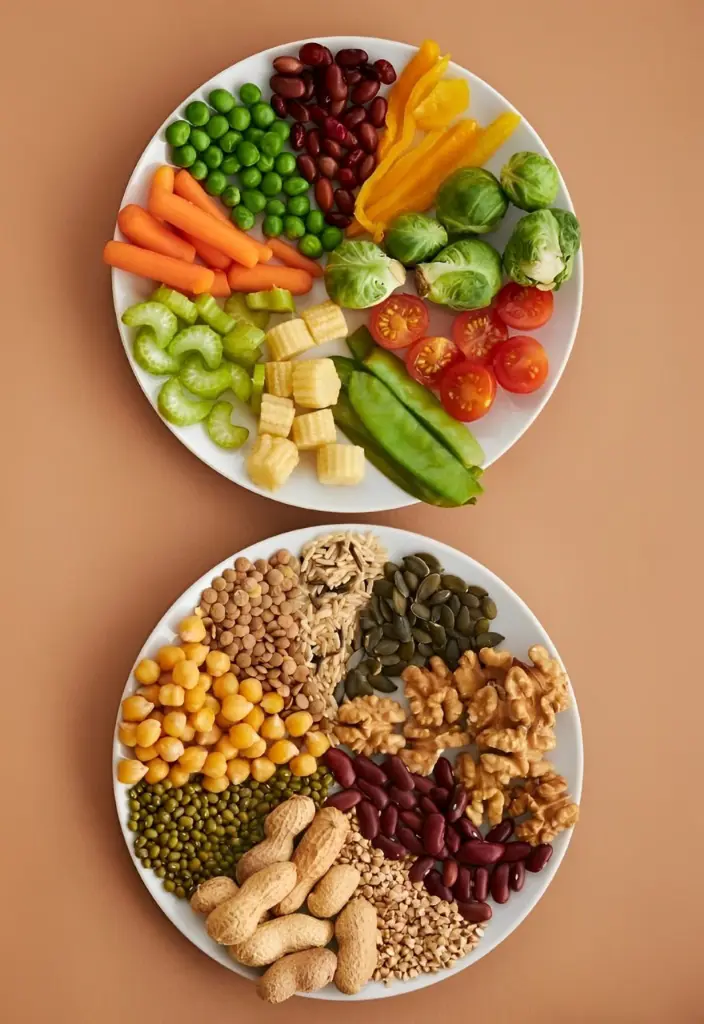
Polycystic ovarian syndrome brings daily challenges, but the right food choices create powerful changes in health and comfort. Simple shifts in meals support women dealing with hormonal changes. Smart eating plans and foods for PCOS reduce difficult symptoms through natural, effective ways.
This guide shares specific foods that balance hormones and boost energy levels. Fresh ingredients rich in fiber, healthy fats, and natural compounds work with medical care to enhance wellness and bring lasting improvements.
1. Brussels Sprouts

Brussels sprouts serve as powerful allies in managing PCOS symptoms. These miniature cabbage-like vegetables deliver essential nutrients for regulating hormonal imbalances.
The high fiber content actively controls blood sugar levels – a crucial concern for PCOS patients. Their vitamin K supports blood clotting and bone health, while vitamin C strengthens immune function and skin vitality.
Brussels sprouts contain potent antioxidants for combating inflammation, addressing a key PCOS factor. The glucosinolates within support liver function, enhancing hormone metabolism and regulation.
Likewise, roasting Brussels sprouts with olive oil and garlic brings out their natural sweetness, improving palatability. Including Brussels sprouts 2-3 times weekly creates measurable impacts on PCOS management.
2. Beans and Lentils
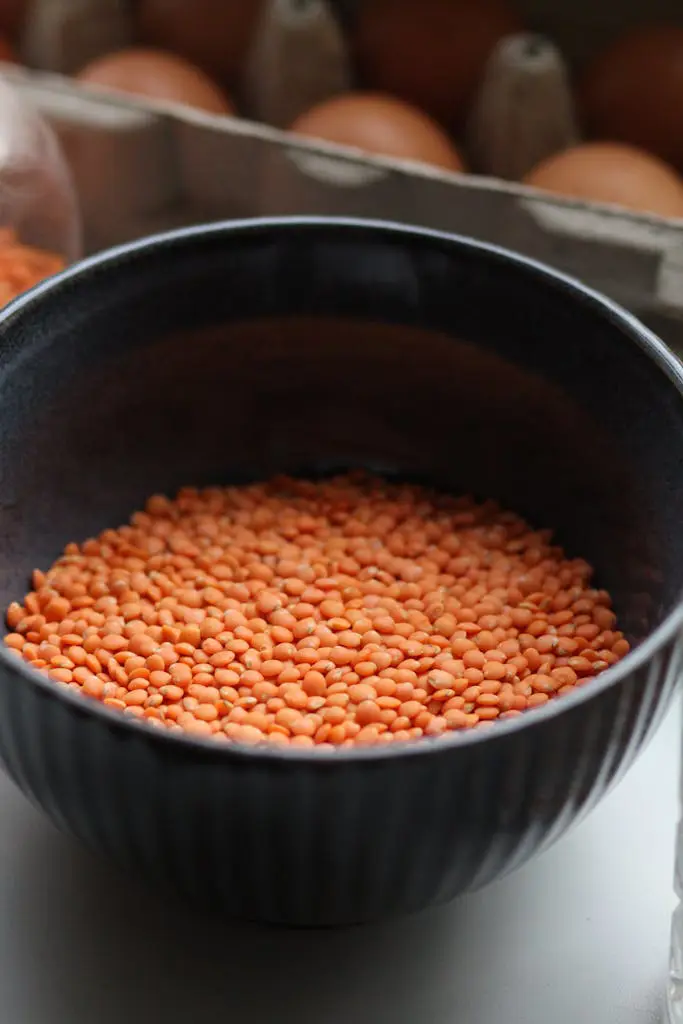
Beans and lentils form essential building blocks for PCOS care through complete food values. Their mix of protein and fiber keeps blood sugar steady and stops quick changes - tackling main PCOS problems.
The high fiber fills the stomach and supports healthy body weight goals. These foods contain key minerals, especially iron, helping women who face heavy monthly cycles from PCOS.
Natural carbohydrates supply lasting energy for daily tasks, unlike quick sugars that upset body balance. Beans and lentils fit into many meal types, from hot soups to cold salads. Eating them often helps cells use insulin better and keeps body signals balanced.
3. Nuts and Seeds
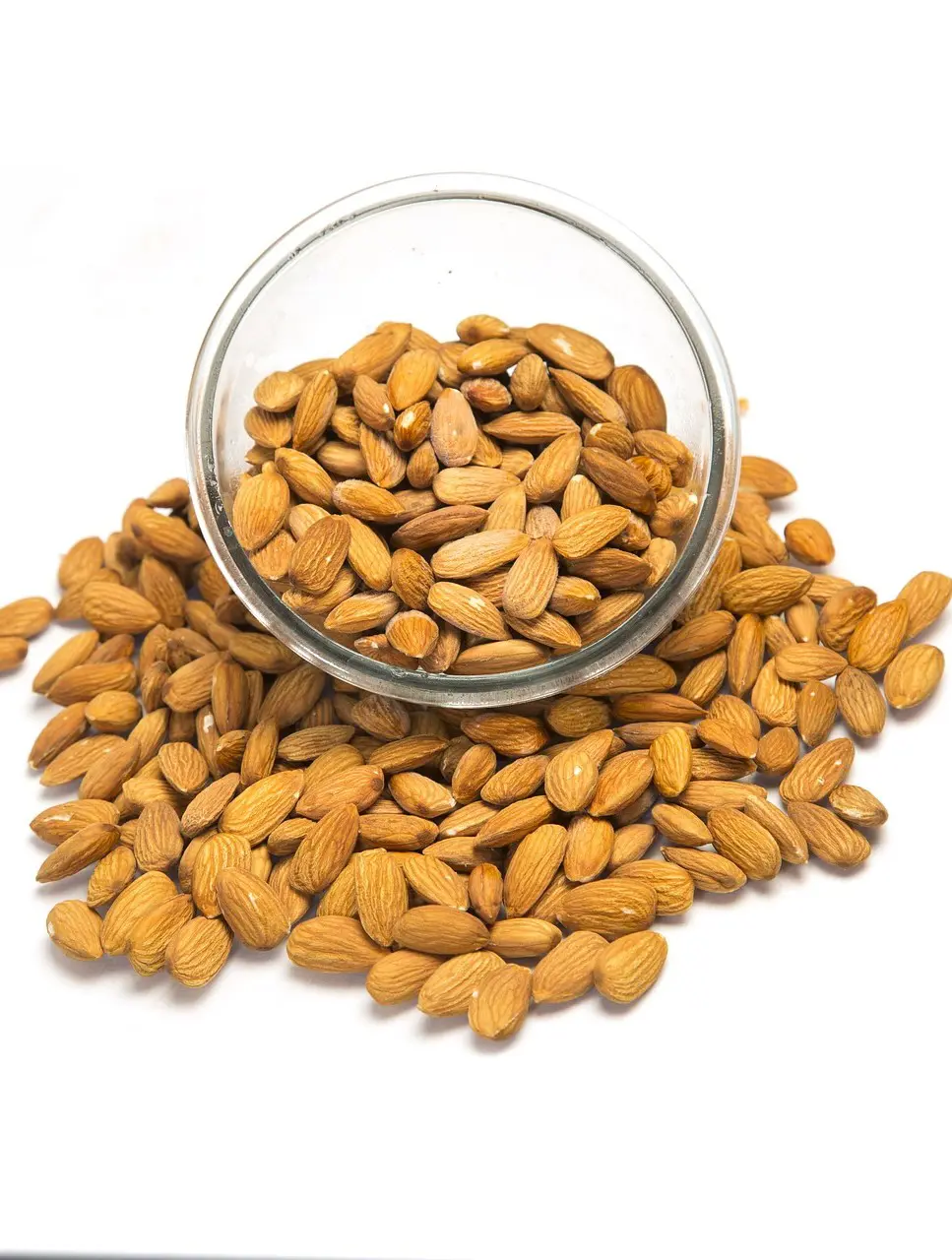
Walnuts, pistachios, and sunflower seeds bring key support for PCOS health. These foods hold special fats that lower body stress and help make needed body signals. The zinc keeps reproductive parts working well and controls insulin use.
Natural elements in these foods support throat glands and keep body messages flowing smoothly. Their mix of good fats and protein steadies blood sugar and gives long-lasting energy.
Each small portion packs powerful help for PCOS signs when eaten in right amounts. Daily servings enhance body signal balance and food processing. Their food makeup helps control hunger and support body weight goals.
4. Arugula

Arugula delivers significant benefits for PCOS management through its concentrated nutrient profile. The abundant folate content supports reproductive health and fertility, addressing core PCOS concerns.
Its vitamin K strengthens bone health and blood clotting mechanisms, while antioxidants reduce oxidative stress throughout the body. The low calorie content combined with high nutrient density supports weight management goals.
Arugula's natural compounds enhance liver detoxification processes, maintaining optimal hormone balance. This leafy green integrates seamlessly into various meals, from fresh salads to warm dishes.
The nutritional benefits increase when combined with healthy fats, particularly olive oil. Regular consumption contributes to reduced inflammation and improved hormonal regulation.
5. Sweet Potatoes

Sweet potatoes function as optimal carbohydrate sources for PCOS management. Their lower glycemic index creates gradual blood sugar rises, unlike conventional potatoes.
The beta-carotene content converts to vitamin A, supporting thyroid function and hormone production. Fiber within sweet potatoes regulates blood sugar and enhances digestive health, crucial for hormone balance.
The chromium content improves insulin sensitivity, addressing a primary PCOS concern. These vegetables provide natural sweetness while delivering complex carbohydrates.
The versatility of sweet potatoes enables various preparation methods, maximizing their nutritional benefits. Regular consumption supports stable blood sugar levels and enhanced hormone regulation.
6. Winter Squash

Winter squash brings vital food support for PCOS care. Natural fibers and complex sugars keep blood levels steady all day long. Orange plant colors and vitamin C build body defenses and skin health, while minerals control blood flow and body water.
Natural compounds lower body stress linked to PCOS. The natural sweet taste and soft feel makes winter squash fill the place of processed foods.
Various preparation methods unlock different nutritional benefits (you can roast, stir, or bake the squash). Eating winter squash often keeps energy flowing and balances body signals through many paths.
7. Tomatoes

Tomatoes add strong benefits to PCOS care through special red compounds. These protective elements lower body stress, helping a main PCOS concern.
Natural vitamin C builds body defenses and helps iron work better, supporting women with heavy cycles. Minerals balance blood pressure and reduce extra water. Low food energy and high water help maintain healthy weight.
Cooking tomatoes with good fats lets the body use more benefits. Regular servings reduce cell stress and support body signal balance through several ways.
8. Kale
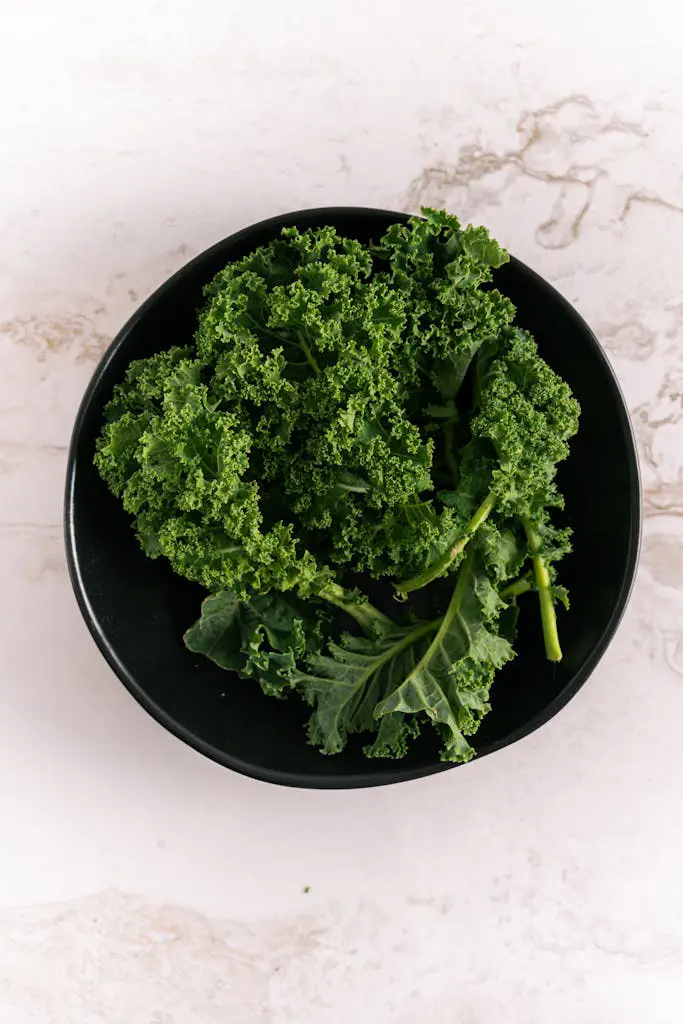
Kale holds dense food value for PCOS support. Vitamins A, C, K mixed with calcium and iron work together for complete signal balance.
Plant fibers control blood sugar and support food processing, needed for signal changes. Natural compounds aid liver work and signal cleaning.
Body-protecting elements lower widespread stress common in PCOS. Special plant guards shield cell health. Various cooking methods increase food benefits. Regular portions support many parts of signal health and PCOS care.
9. Spinach

Spinach delivers essential nutrients for PCOS management. The iron content supports women experiencing heavy menstrual bleeding. Magnesium regulates insulin levels and reduces sugar cravings, while folate enhances reproductive health.
Anti-inflammatory compounds reduce systemic inflammation and oxidative stress. The fiber content supports blood sugar regulation and digestive health. Multiple preparation methods maintain nutrient availability.
Regular consumption improves energy levels and supports comprehensive hormone balance. The versatility of spinach enables regular incorporation into various meals.
10. Salmon

Salmon provides concentrated nutrition for PCOS management through omega-3 fatty acids. These essential fats reduce inflammation and support hormone production. The high-quality protein stabilizes blood sugar and enhances satiety.
Vitamin D content addresses common deficiencies in PCOS patients. Selenium supports thyroid function and hormonal balance. Anti-inflammatory properties reduce systemic inflammation.
The healthy fats enhance absorption of fat-soluble vitamins. Regular consumption significantly improves PCOS symptoms through multiple nutritional pathways.
11. Olive Oil

Olive oil delivers fundamental support for PCOS management. Monounsaturated fatty acids reduce inflammation and support hormone production. Polyphenols combat oxidative stress and protect cellular health.
The oil enhances absorption of fat-soluble vitamins crucial for hormonal balance. Regular consumption improves insulin sensitivity. Various culinary applications maximize health benefits.
The antioxidant content provides comprehensive support for hormone regulation. Extra virgin varieties deliver maximum nutritional benefits through concentrated compounds.
12. Strawberries

Strawberries offer essential support for people dealing with PCOS. Each berry contains vitamin C that reduces body stress and strengthens natural defenses. The deep red colors hold protective compounds that safeguard cells and enhance total body function.
These fruits create mild changes in blood sugar levels, making them excellent choices for PCOS care. Natural fibers slow sugar movement through the body and create lasting fullness after meals.
The berries also supply folate, supporting body cycles and reproductive health. Fresh berries eaten alone, mixed into cold drinks, or served with protein foods bring natural sweetness while supplying needed nutrients.
These bright fruits turn simple meals into beneficial treats that support PCOS management.
13. Whole Grains
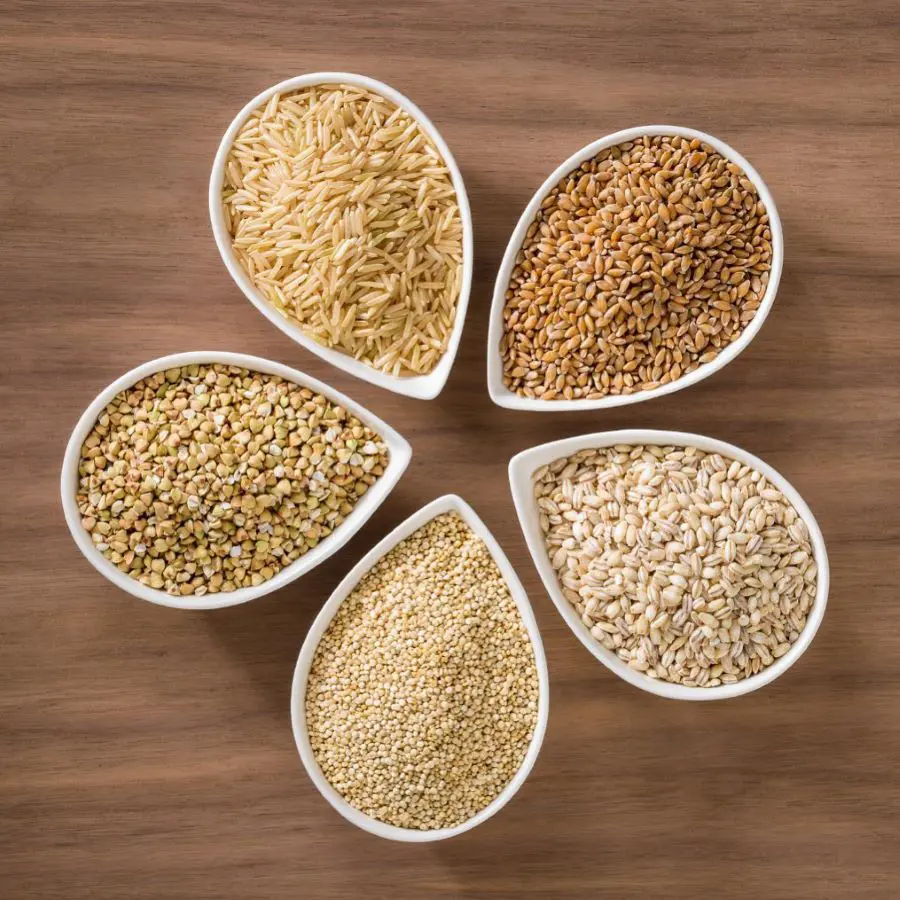
Whole grains serve as foundation foods in PCOS meal plans, supplying constant energy and varied health supports. Unlike processed grains, these foods keep their complete sections, providing fiber, B vitamins, and essential minerals.
Their natural structure maintains steady blood sugar and prevents rapid changes - essential elements in PCOS care. The fiber supports food processing and helps move extra hormones from the body regularly.
These grains contain magnesium and zinc, supporting hormone creation and helping cells process insulin. Foods such as quinoa, brown rice, and oats create satisfying meal bases while supporting hormone levels.
Regular portions of whole grains enhance energy flow and maintain steady blood sugar through each day. These grains turn basic meals into powerful supports for total body wellness.
14. Eggplant

Eggplant adds distinct benefits for people managing PCOS symptoms. This low-energy, fiber-rich food supports blood sugar control and body weight balance - central parts of PCOS care.
The purple covering contains special compounds that protect cells from damage and support blood movement through the body. Rich fiber content creates lasting fullness and supports digestion, while limited carbohydrates help maintain steady insulin levels.
Natural elements in eggplant support liver function, helping process and remove extra hormones effectively. This vegetable welcomes many cooking methods - over heat, under flames, or in hot ovens - creating filling meals that enhance PCOS health.
Each preparation method brings new flavors while maintaining the vegetable's beneficial properties.
15. Turmeric

Turmeric holds active compounds bringing marked improvements for PCOS symptom care. The yellow spice reduces body stress, addressing widespread tension common with PCOS.
Many people facing PCOS need support processing food energy, and turmeric enhances cell response to insulin while supporting steady blood sugar. Natural compounds protect cells while supporting liver hormone processing.
Proper preparation increases benefits - mixing with black pepper and natural fats helps body absorption. Daily use allows many options - cold drinks, warm foods, spiced milk, or supplements with medical guidance.
Regular turmeric use supports positive changes in PCOS signs while enhancing hormone balance through all body systems. Each serving builds on previous benefits, creating lasting improvements in PCOS management.
What Foods To Avoid In PCOS?
Food plays a crucial role in how your body handles PCOS symptoms. Every bite influences your hormone balance, energy levels, and overall wellbeing. Understanding which foods cause problems helps create positive changes in your health journey.
Your kitchen holds both allies and opponents in managing PCOS. Many everyday foods can intensify symptoms and create challenges for your body. Making informed choices about what stays off your plate matters just as much as choosing beneficial foods.
Here are the foods that often cause problems with PCOS:
- White Flour Products: The fluffy white breads, regular pasta dishes, store-bought pizza crusts, and common crackers quickly transform into sugar in your bloodstream. This rapid conversion disrupts your body's delicate hormone balance and worsens PCOS symptoms
- Sweet Beverages: Sodas, bottled fruit juices, sweetened iced teas, and energy drinks flood your system with excess sugar. These drinks create sharp blood sugar spikes that amplify hormone irregularities
- Processed Snack Foods: Packaged cookies, grocery store cakes, commercial granola bars, and candy contain hidden sugars and inflammatory fats. These ingredients work against your body's natural healing processes
- Sugary Breakfast Cereals: Quick-cook oatmeal packets and sugar-coated breakfast cereals start your day with an unhelpful sugar surge. This morning sugar spike can affect your energy and hormones throughout the day
- Deep-Fried Foods: French fries, battered chicken, breaded fish, and potato chips introduce unhealthy fats into your system. These fats increase inflammation and complicate PCOS management
- Refined White Rice: Similar to other processed grains, white rice causes rapid blood sugar changes. These fluctuations make PCOS symptoms harder to control
- Excessive Red Meat: Large portions of hamburger, pork cuts, and steak contribute to body-wide inflammation. This inflammation interferes with hormone regulation
- Processed Meat Products: Hot dogs, deli meats, and breakfast sausages contain additives that disrupt hormone balance. These processed options also often hide unhealthy fats and excess sodium
Your body faces unique challenges with PCOS, particularly in processing sugars and carbohydrates effectively. Foods from this list create additional stress on your system, leading to increased inflammation, weight management difficulties, and more noticeable PCOS symptoms.
Recent posts
Nutrition
Nutrition
Licorice Root: Benefits And Uses
You can spell it liquorice or licorice; this herb or root has been in use for centuries in most medicinal applications, as a natural sweetener and to enhance flavors. Regarding its origins, it comes from the root of the "Glycyrrhiza galbre" plant and...
Nutrition
Is Salmon Good For You? Nutritional Facts and Benefits
Salmon fish is a staple diet throughout the world, popular as a super food for its nutrients. Whether savored in sushi, poached, grilled, roasted, or pan-fried, salmon offers minerals and vitamins that contribute to healthy bodily functions. In addit...
Nutrition
25 Smoked Salmon Recipes That You Will Enjoy
Salmon is a silver-colored fish that is loaded with many nutrients, vitamins, and omega-3 fatty acids. Smoked Salmon is better for improving your health and reducing the risk of cancer, heart-related diseases, fights inflammation, reduces anxiety and...
Nutrition
Are Sausages Healthy? Nutrition And Health Benefits
Sausages are tasty in an addictive way, making them one of the most popular foods worldwide. You may have enjoyed this convenient food often, whether on a bun with mustard or grilled on a barbecue, the simple preparation methods are what makes its co...
Nutrition
20 Vegetables That Are Rich In Iron
Iron is essential for our bodies to function well. When we don't get enough iron, we often feel weak and tired. It's important to address iron deficiency early by eating the right foods. Fortunately, many vegetables are rich in iron and can help prev...
Nutrition
15 Cauliflower Nutrition Facts And Health Benefits
Cauliflower, a cruciferous vegetable, resembles a white variation of its relative, broccoli. Like broccoli, it has closely bunched florets attached to a thick core, often surrounded by a few leaves. While white is the most common color, cauliflower i...







